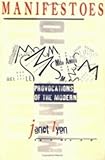Manifestoes : Provocations of the Modern / Janet Lyon.
Material type: TextPublisher: Ithaca, NY : Cornell University Press, [2018]Copyright date: ©1999Description: 1 online resource (240 p.)Content type:
TextPublisher: Ithaca, NY : Cornell University Press, [2018]Copyright date: ©1999Description: 1 online resource (240 p.)Content type: - 9781501728358
- 809/.93358 21
- PN51 .L936 1999
- online - DeGruyter
| Item type | Current library | Call number | URL | Status | Notes | Barcode | |
|---|---|---|---|---|---|---|---|
 eBook
eBook
|
Biblioteca "Angelicum" Pont. Univ. S.Tommaso d'Aquino Nuvola online | online - DeGruyter (Browse shelf(Opens below)) | Online access | Not for loan (Accesso limitato) | Accesso per gli utenti autorizzati / Access for authorized users | (dgr)9781501728358 |
Browsing Biblioteca "Angelicum" Pont. Univ. S.Tommaso d'Aquino shelves, Shelving location: Nuvola online Close shelf browser (Hides shelf browser)

|

|

|

|

|

|

|
||
| online - DeGruyter Christianizing Kinship : Ritual Sponsorship in Anglo-Saxon England / | online - DeGruyter Negotiating the Constitution : The Earliest Debates over Original Intent / | online - DeGruyter The New Rank and File / | online - DeGruyter Manifestoes : Provocations of the Modern / | online - DeGruyter Aquinas's Moral Theory : Essays in Honor of Norman Kretzmann / | online - DeGruyter Being and Goodness : The Concept of the Good in Metaphysics and Philosophical Theology / | online - DeGruyter "Lazy, Improvident People" : Myth and Reality in the Writing of Spanish History / |
Frontmatter -- Contents -- Acknowledgments -- Introduction: Polemics in the Modern Vein -- 1. Manifestoes and Public Spheres: Probing Modernity -- 2. Manifestoes and Revolutionary Discourse: Women in the Cross Fire -- 3. Militant Allies, Strange Bedfellows: Suffragettes and Vorticists before the War -- 4. Modernists and Gatekeeping Manifestoes: Pound, Loy, and Modern Sanctions -- 5. A Second-Wave Problematic: How to Be a Radical -- Conclusion: Now and Again -- Works Cited -- Index
restricted access online access with authorization star
http://purl.org/coar/access_right/c_16ec
For more than three hundred years, manifestoes have defined the aims of radical groups, individuals, and parties while galvanizing revolutionary movements. As Janet Lyon shows, the manifesto is both a signal genre of political modernity and one of the defining forms of aesthetic modernism. Ranging from the pamphlet wars of seventeenth-century England to dyke and ACT-UP manifestoes of the 1990s, her extraordinarily accomplished book offers the first extended treatment of this influential form of discourse. Lyon demonstrates that the manifesto, usually perceived as the very model of rhetorical transparency, is in fact a complex, ideologically inflected genre—one that has helped to shape modern consciousness. Lyon explores the development of the genre during periods of profound historical crisis. The French Revolution generated broadsides that became templates for the texts of Chartism, the Commune, and late-nineteenth-century anarchism, while in the twentieth century the historical avant-garde embraced a revolutionary discourse that sought in the manifesto's polarizing polemics a means for disaggregating and publicizing radical artistic movements. More recently, in the manifestoes of the 1960s, the wretched of the earth called for either the full realization or the final rejection of the idea of the universal subject, paving the way for contemporary contestations of identity among second- and third-wave feminists and queer activists.
Mode of access: Internet via World Wide Web.
In English.
Description based on online resource; title from PDF title page (publisher's Web site, viewed 26. Apr 2024)


